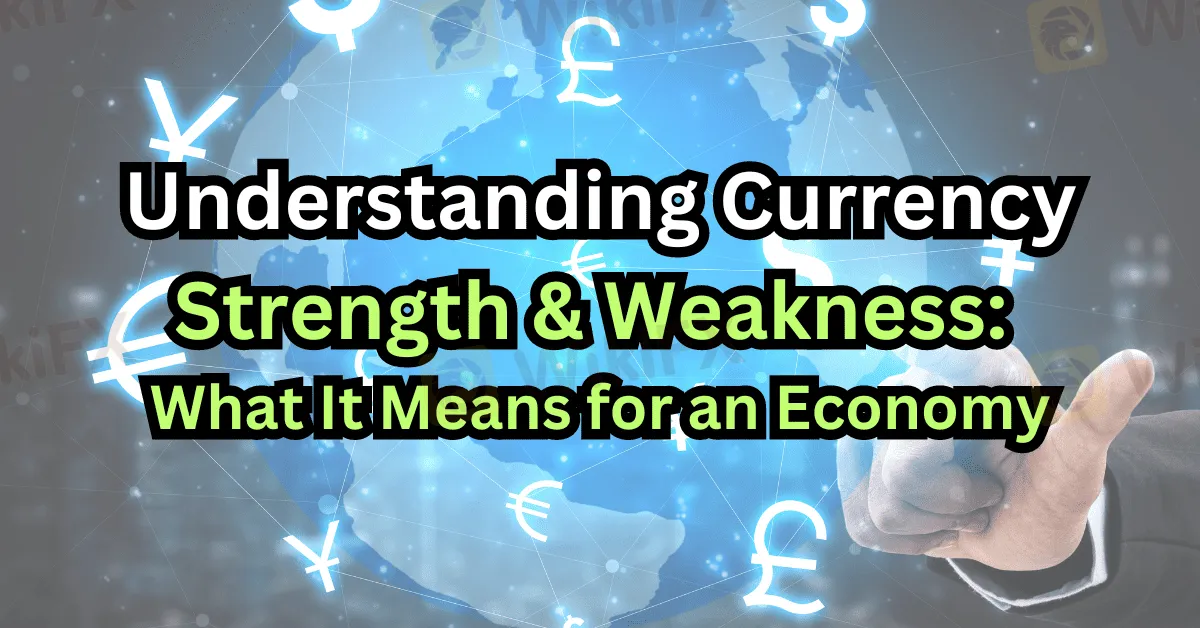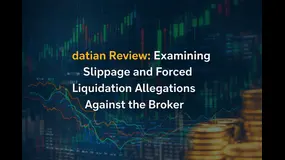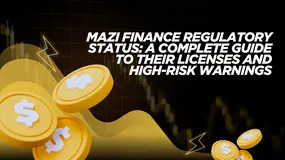Abstract:Currency movements—whether a currency strengthens or weakens—are critical indicators of a country's economic health and its position in the global market. In this article, we explore what these movements imply, and how they influence a country’s economic landscape.

Currency movements—whether a currency strengthens or weakens—are critical indicators of a country's economic health and its position in the global market. Exchange rate fluctuations impact not only financial markets but also the everyday lives of consumers and businesses. When a currency strengthens, it signals growing confidence in that economy, while a weakening currency can often reflect underlying challenges. In this article, we explore what these movements imply, and how they influence a countrys economic landscape.

When a countrys currency strengthens, it means that its value increases relative to other currencies. For example, if the U.S. dollar strengthens against the euro, it takes fewer dollars to purchase one euro. A stronger currency can be influenced by various factors such as improved economic performance, rising interest rates, trade surpluses, or geopolitical stability. Here are the key implications of a strengthening currency:
One of the most immediate effects of a stronger currency is that imports become cheaper. Since the countrys currency now buys more foreign currency, businesses and consumers benefit from reduced costs on imported goods such as electronics, machinery, or food products. For example, in countries that rely heavily on imported goods, a stronger currency helps lower inflationary pressures by keeping the prices of foreign goods down.
However, while importers benefit from a strong currency, exporters often face challenges. When a currency strengthens, the price of goods produced within that country becomes more expensive for foreign buyers. This can lead to a decrease in demand for exports as overseas customers seek more cost-effective alternatives. Consequently, industries that rely heavily on exporting, such as manufacturing or agriculture, may experience reduced revenues, and in the long term, this could result in lower employment or slower economic growth in these sectors.
A stronger currency can also attract foreign investment, as it signals a robust and stable economy. Investors often look to countries with strengthening currencies as safer havens for their capital. This can result in increased capital inflows into equity markets, government bonds, and real estate. A strong currency also tends to boost confidence among international investors, who see the country as less risky and more promising for returns.
A stronger currency can help central banks manage inflation more effectively. As the costs of imports fall, this reduces the overall price level of goods and services in the country. Lower inflationary pressures give central banks more flexibility in setting interest rates, allowing them to keep rates lower for longer if necessary to stimulate economic growth.

On the other hand, a weakening currency refers to a decline in its value relative to other currencies. For instance, if the British pound weakens against the U.S. dollar, more pounds are required to buy the same amount of dollars. This situation can arise due to a variety of factors such as economic instability, political uncertainty, rising government debt, or lower interest rates. The weakening of a currency has significant implications:
A weaker currency can be beneficial for exporters. When the currency depreciates, goods and services produced domestically become cheaper for foreign buyers. This makes exports more competitive in global markets, potentially leading to higher demand for domestically-produced goods. Countries with a large export sector often benefit from a weaker currency as it helps boost their trade balance and stimulates economic growth through increased export revenue.
While a weaker currency helps exports, it makes imports more expensive. As the cost of foreign goods and services rises, inflationary pressures can mount, particularly in countries that rely heavily on imported products like oil, raw materials, or electronics. For consumers, this can result in higher prices for everyday goods and services, leading to a reduced standard of living as their purchasing power declines.
Currency depreciation often leads to inflation, as imported goods and services become pricier. Central banks may respond by raising interest rates to control inflation, which can further slow economic growth. High inflation rates also erode the real value of wages, savings, and investments, which can negatively affect consumer confidence and spending.
A weakening currency may lead to capital flight, as both domestic and foreign investors lose confidence in the countrys economic prospects. Investors may move their funds to more stable currencies or economies, resulting in a decline in stock market valuations and an increase in borrowing costs for the government and businesses. Additionally, the country may face difficulties in attracting new investments, as the weakening currency reflects greater economic or political risk.

Both strengthening and weakening currencies can be influenced by central banks through their monetary policy decisions. For instance, raising interest rates can lead to currency appreciation, as higher returns attract foreign capital. Conversely, lowering interest rates may weaken the currency by making the countrys assets less attractive to investors.
Central banks often intervene to stabilize their currency, especially in cases of rapid appreciation or depreciation. This is particularly true for export-oriented economies, where a rapidly strengthening currency can harm their competitiveness. Similarly, when a currency weakens too much, it can lead to runaway inflation, prompting intervention to restore balance.
In conclusion, the movements of a country's currency, whether strengthening or weakening, carry profound economic implications. While a strong currency benefits consumers by lowering import costs and attracting investment, it can be detrimental to export industries. A weaker currency can stimulate exports but raises import prices and inflation risks. Understanding these dynamics is crucial for businesses, investors, and policymakers alike as they navigate the challenges and opportunities posed by currency fluctuations.













